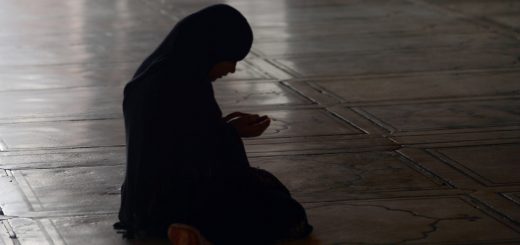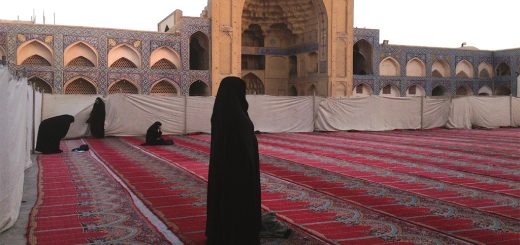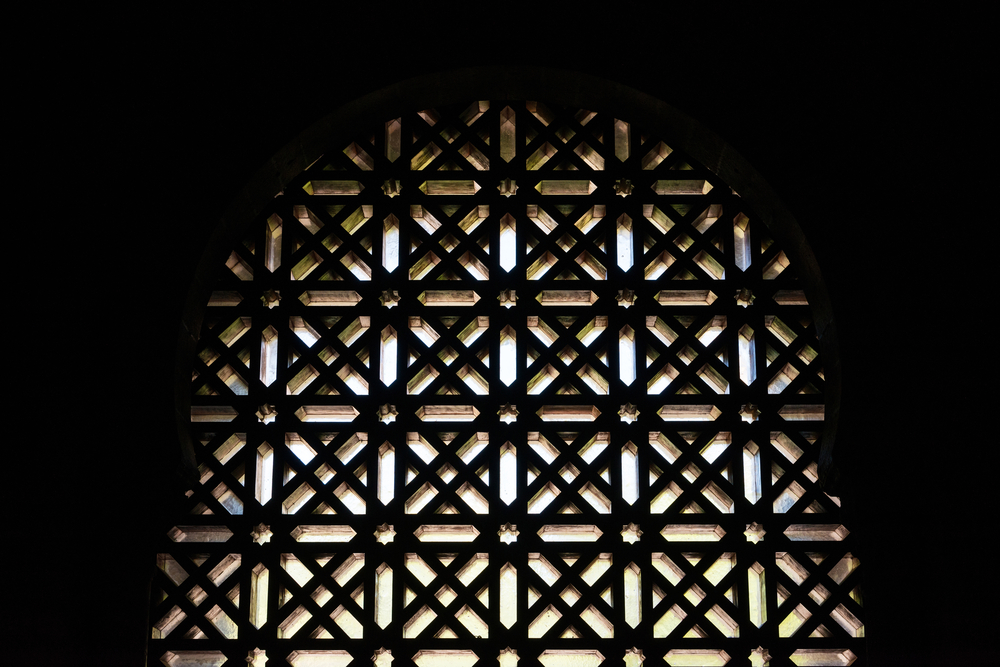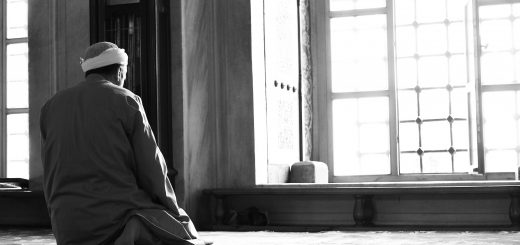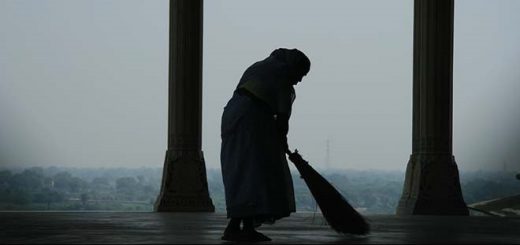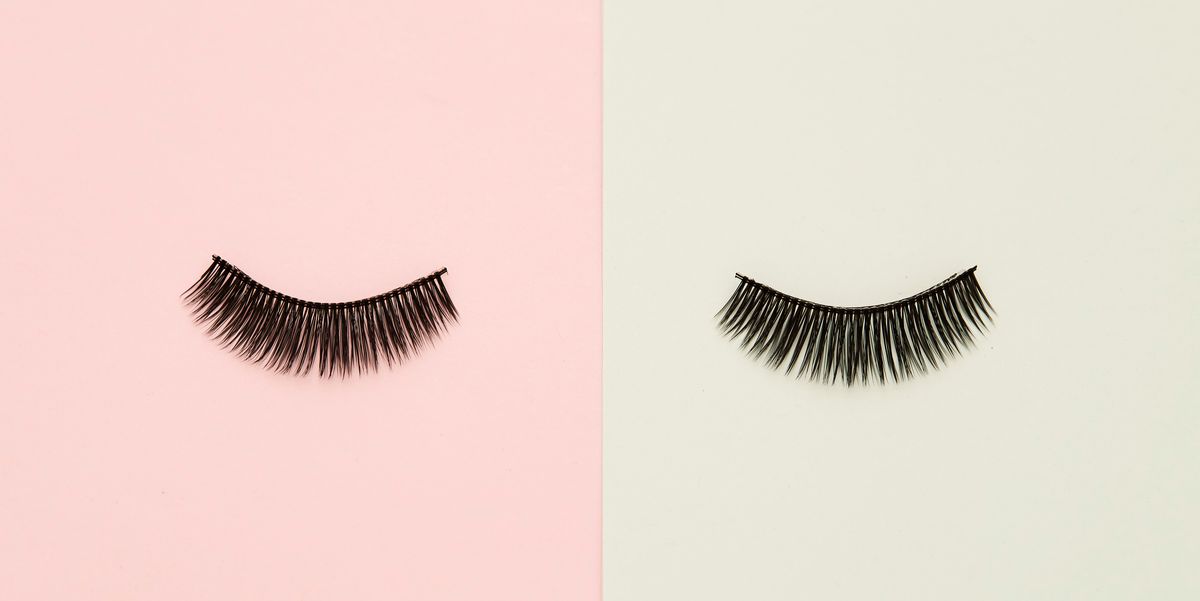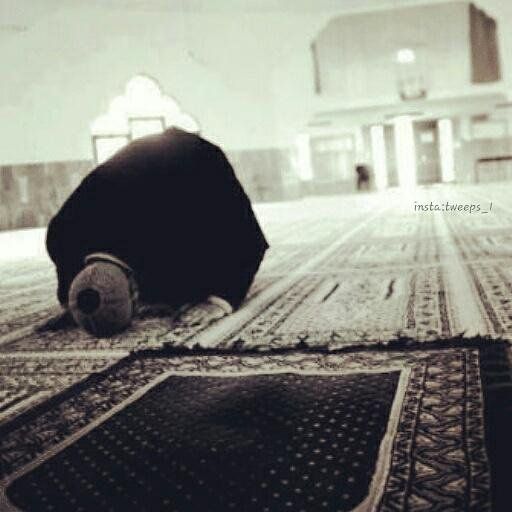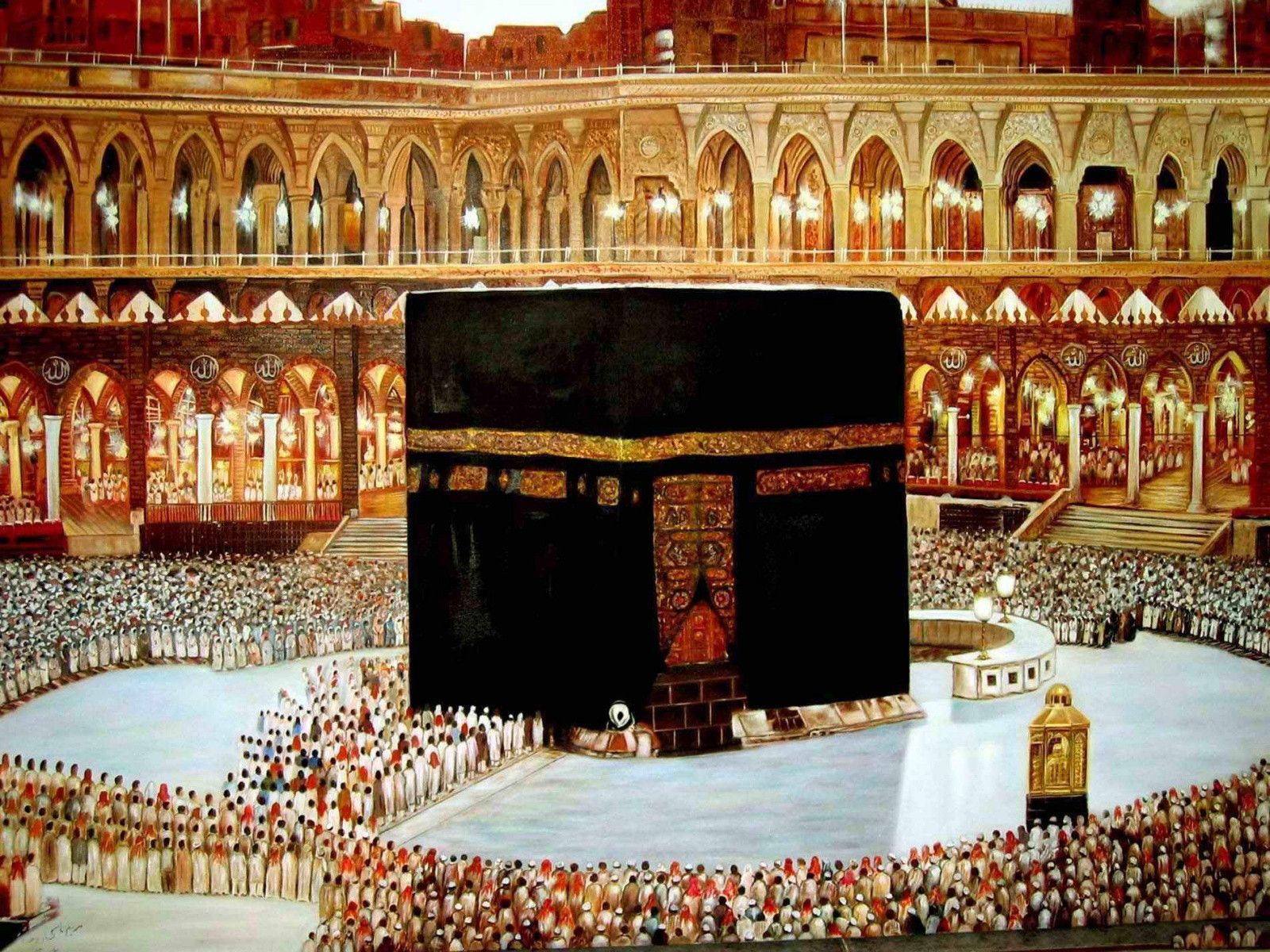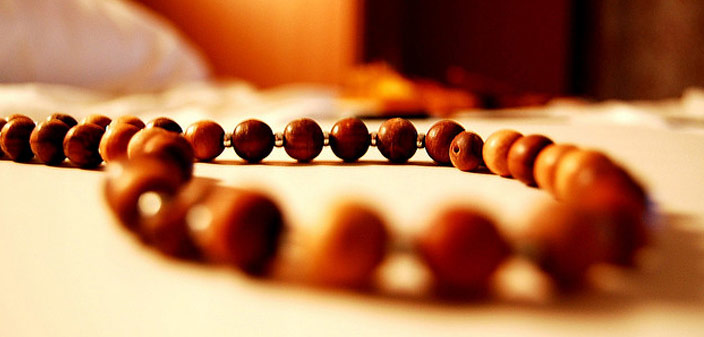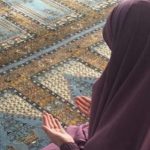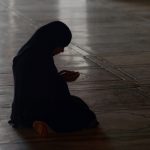QUESTION:
What do the scholars of the Dīn and muftīs of the Sacred Law state regarding the following issue: What restrictions are necessary to consider for an old woman whose husband has just passed away. Can she meet her mahram relatives and also can she converse with them – those who actually come to visit her in her home. Can she leave the room to get some sunlight?
Questioner: Haleemah from UK
ANSWER:
بسم اللہ الرحمن الرحیم
الجواب بعون الملک الوھاب اللھم ھدایۃ الحق والصواب
Grieving during ‘Iddah is wājib upon a woman whose husband has just passed away. Meaning, it is essential for her to keep the following restrictions in mind during ‘Iddah:
1) Not to beautify herself – meaning, she should not wear any type of jewellery; silver, gold, gems, etc nor any type of or coloured silk clothing; even if it is black.
2) Not to use perfume on her body or clothes.
3) Not to apply oil, even if it is not of the scented kind, for example, olive oil. Nor should she comb/brush her hair, nor apply black surma [kohl].
4) Likewise, it is prohibited for her to apply white scented surma, mehndi [henna], saffron, [the red dye of] safflower, ochre dye or wear red clothes.
It is wājib for her to avoid all of these, just as it is stated in Durr Mukhtār and Fatāwā Hindiyyah.
5) To spend her ‘Iddah in her husband’s house; she cannot go outside. If she does need to go outside due to not having enough money for instance, it is permitted for her to work so that she can earn a living, so she may go out to work during the day and for some part of the evening. However, she is to spend the most part of the night in her home; it is not permitted for her to stay outside without a need, just as it is stated in Durr Mukhtār ma’ Radd al-Muhtār,
“وَالْحَاصِلُ أَنَّ مَدَارَ حِلِّ خُرُوجِهَا بِسَبَبِ قِيَامِ شُغْلِ الْمَعِيشَةِ فَيَتَقَدَّرُ بِقَدْرِهِ، فَمَتَى انْقَضَتْ حَاجَتُهَا لَا يَحِلُّ لَهَا بَعْدَ ذَلِكَ صَرْفُ الزَّمَانِ خَارِجَ بَيْتِهَا”
“The basis for the permissibility of her (the women whose husband has passed away) going out of her home is due to her being busy in earning a livelihood (for maintenance). So her leaving the house for this amount of time will be permissible, however once her needs are fulfilled, then her leaving her home is not permissible.”
[Radd al-Muhtār, vol 5, pg 228]
As far as the meeting of mahram relatives and conversing with them is concerned, so there is no problem with this, however she cannot leave her home. If relatives come to meet her, she can speak with them.
It is permissible for such a woman to get sunlight from the courtyard or garden of the house which is of her husband’s only, just as it is stated in Durr Mukhtār ma’ Radd al-Muhtār,
“لَا إلَى صَحْنِ دَارٍ فِيهَا مَنَازِلُ لِغَيْرِهِ ای غَيْرِ الزَّوْجِ، بِخِلَافِ مَا إذَا كَانَتْ لَهُ فَإِنَّ لَهَا أَنْ تَخْرُجَ إلَيْهَا وَتَبِيتَ فِي أَيِّ مَنْزِلٍ شَاءَتْ لِأَنَّهَا تُضَافُ إلَيْهَا بِالسُّكْنَى”
[al-Durr al-Mukhtār, vol 5, pg 227]
It is stated in Bahār-e-Sharī’at that if there is one courtyard spread across a few houses and they all belong to the husband, then she can come out into the courtyard; if they belong to someone else then not.
[Bahār-e-Sharī’at, vol 2, pg 244]
واللہ تعالی اعلم ورسولہ اعلم صلی اللہ علیہ وآلہ وسلم
کتبہ ابو الحسن محمد قاسم ضیاء قادری
Answered by Mufti Qasim Zia al-Qadri
Translated by Haider Ali
Read the original Urdu answer here: [Q-ID0566] Is it permissible for a Widow to leave the house to work or speak to people during her iddah?
Also see:
[Q-ID0730] What is the time period of Iddah for the Widow and what are the restrictions?




